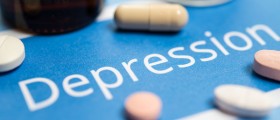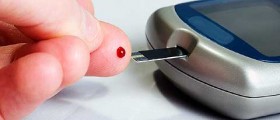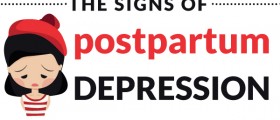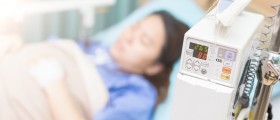
In many cases, people with diabetes type 1 tend to be prone to depression. This can stem from poor diabetes control or some other factors. Either way, it is important to seek medical assistance if the depression seems to be caused by factors other than physical ones. If the culprit is emotional or mental, it needs to be treated through psychotherapy or antidepressants. However, remember that not every occurrence of feeling sad, hopeless, grieving and other such negativity can be a sign of depression. Rather, you have to be bothered by these feelings for at least a couple of weeks in order to be diagnosed with depression.
Depression and Diabetes
Diabetics do not necessarily have to suffer from depression. Yet, they are more prone to it than other, healthier people. This increased susceptibility to depression may rise from the feeling of loneliness or abandonment that diabetes patients find when faced with treatments and difficult, demanding management of their condition. Keeping your blood sugar under control is a hard task and you may easily lose control, leading to stress, anxiety and tension, making matters even worse.
However, the onset of depression in diabetes creates a vicious circle since it prevents one from taking a good care about his/her delicate health condition. Namely, a depressed diabetic may find it hard to keep track of his/her blood sugar levels, pay his/her doctor regular visits etc. Gradually, this leads to following a bad diet plan and many other factors, all of which contribute to the worsening of your condition, due to depression, preventing you from taking a good care of your health.
Signs of Depression
Once you stop being interested in matters which used to amuse you, depression may have affected you. Also, if you have sleeping difficulties, finding it hard to fall asleep, waking up often during the night or sleeping all the time, these imbalances could also be the sign of depression, especially if you wake up early every day, unable to fall asleep again.
Depressed people experience appetite changes and they either start eating too much and gaining weight or they loose their appetite and hardly eat at all, losing a lot of their body mass. Also, having troubles concentrating, being nervous all the time, feeling guilt or constant sadness, or possibly contemplating suicide, all can be signs of depression you should pay attention to and react once they occur.
Seeking Treatment
Once you notice signs of depression, do not hesitate to seek help. Sometimes, your condition can stem from alcohol abuse, thyroid problems or some medications you are taking. Thus, you need the underlying cause diagnosed and properly treated.
Psychotherapy and antidepressants are the most common ways of treating depression. In some cases, these two are even combined for the highest level of effectiveness.

















Your thoughts on this
Loading...